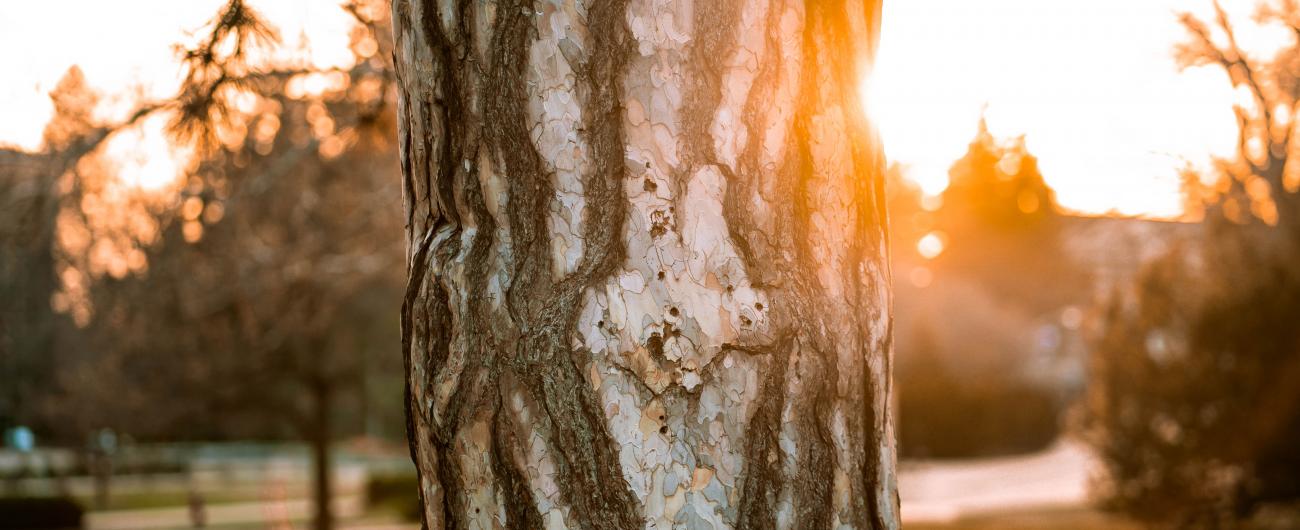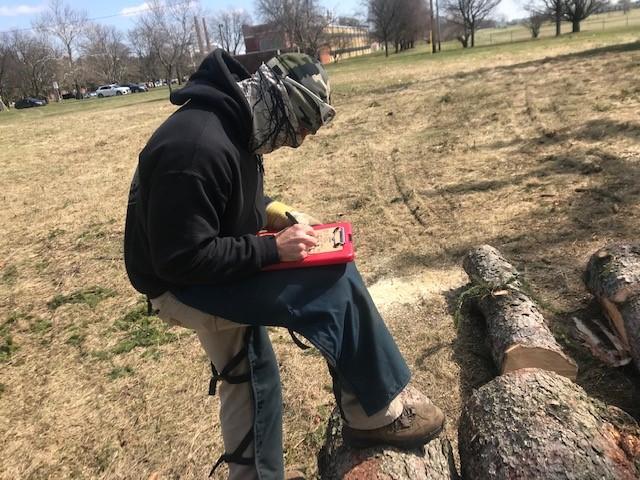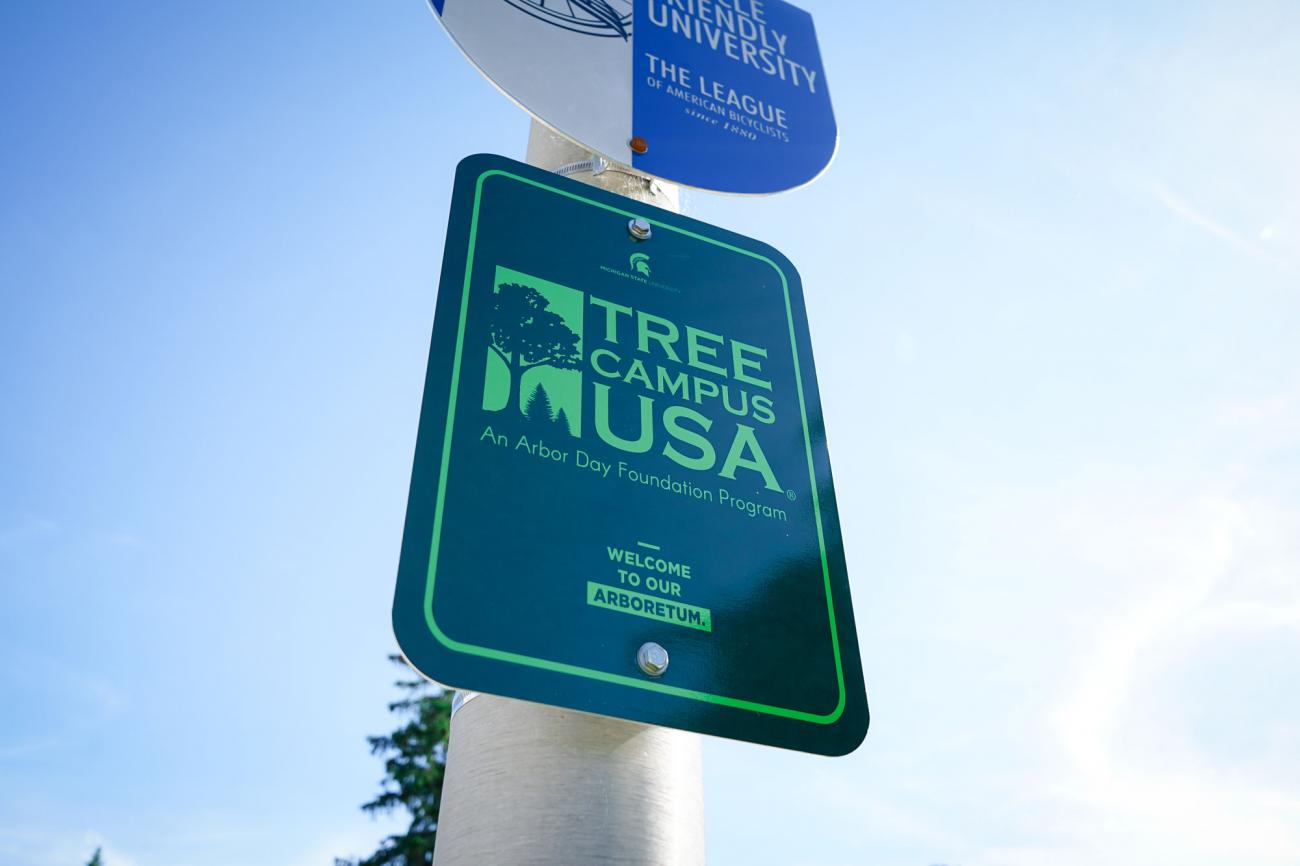IPF campus arborists partner with Department of Forestry to study urban trees

Danielle Fowler
September 9, 2021
Michigan State University's campus is home to nearly 50,000 students during the academic year. It's also home to over 21,000 trees, making it an arboretum in the heart of Michigan.
That makes the MSU campus a great place to study urban tree form and function. David MacFarlane, a professor of forest measurements and modeling in the Department of Forestry, studies the role of urban forests in climate mitigation and adaptation. This includes the potential for trees in urban areas to affect the climate through filtering urban pollutants, fine particulates and carbon in the atmosphere, and providing shade.
One tree can absorb up to 330 pounds of CO2 per year, along with sequestering carbon.

MacFarlane has collaborated with IPF's Landscape Services for several years to take advantage of trees that are being removed either because they've been damaged from natural causes or to make way for new construction. This approach means healthy trees don't have to be sacrificed solely for data gathering.
MacFarlane and his team take samples and measure a tree's mass, the strength of the wood in the trunk, bark and branches, and the amounts of carbon sequestered within it.
This type of sampling is called "destructive sampling" because it results in a permanent change to the specimen, namely cutting down the tree itself and dissecting it to take measurements.
However, MacFarlane has begun using a non-destructive sampling technique that allows his team to gather data on a tree before it is removed: LIDAR, a pulsed laser that can generate 3D models. Because the technology is so new, the LIDAR data needs to be verified with destructive sampling after the tree is removed.

Most recently, members of the arborist crew assisted MacFarlane and his team with LIDAR scans and sampling of trees being removed as part of the new TechSmith Headquarters project.
"With IPF's help over the last few years, we have been compiling an excellent and unique data set related to urban-tree form and function from the campus arboretum," said MacFarlane. The trees at the TechSmith Headquarters site will help his team gather data on crabapples (a new species in their research) and Norway Spruce, a tree they have scanned but don't yet have destructive sampling data.
The data MacFarlane gathers will also be part of the USDA national urban forest inventory.
